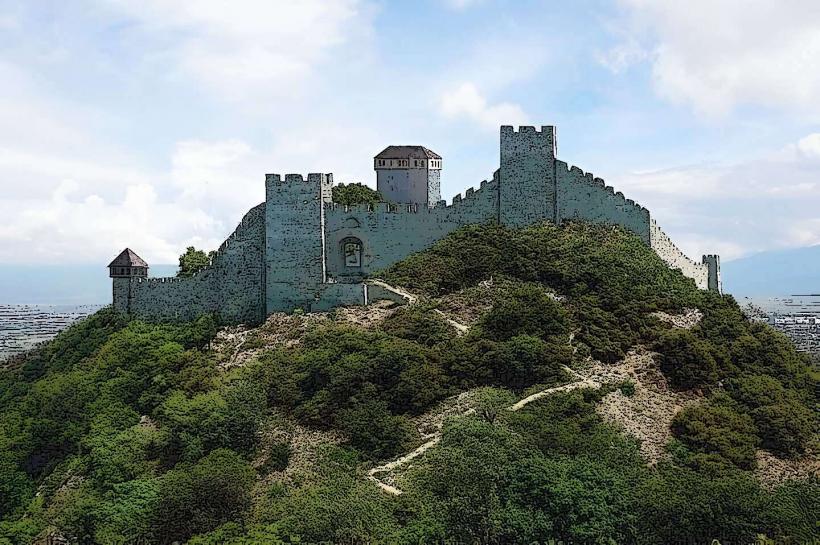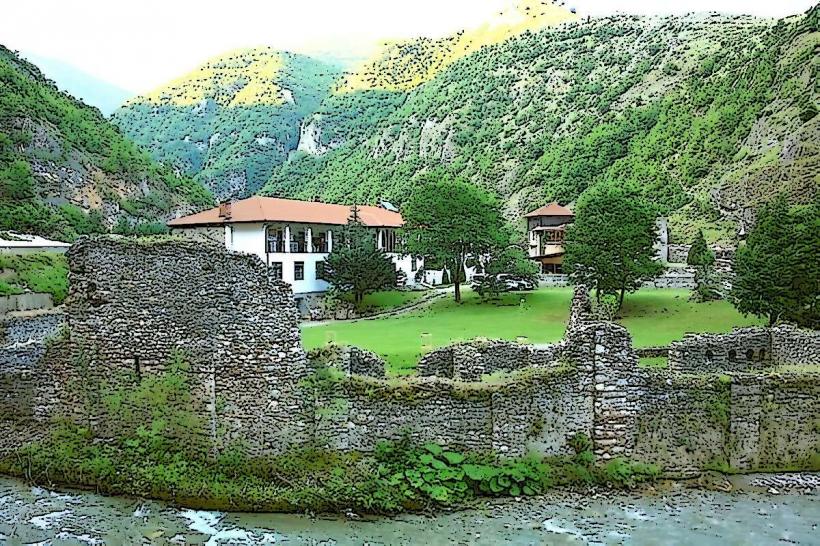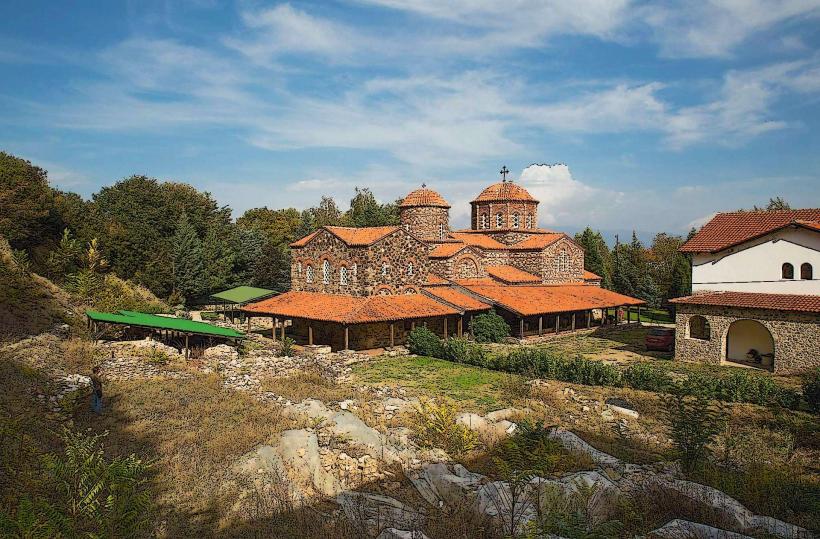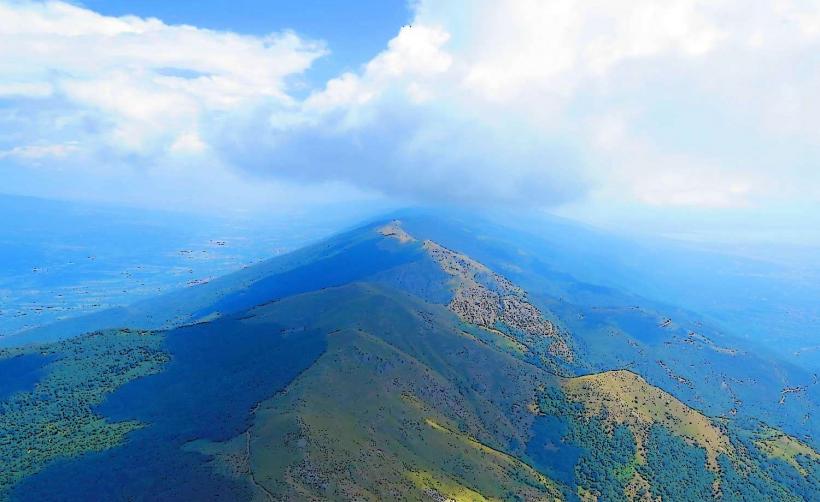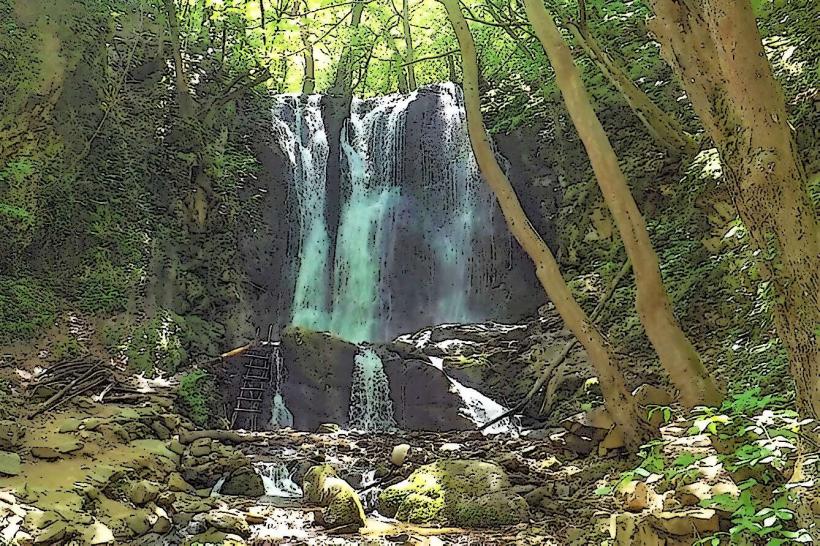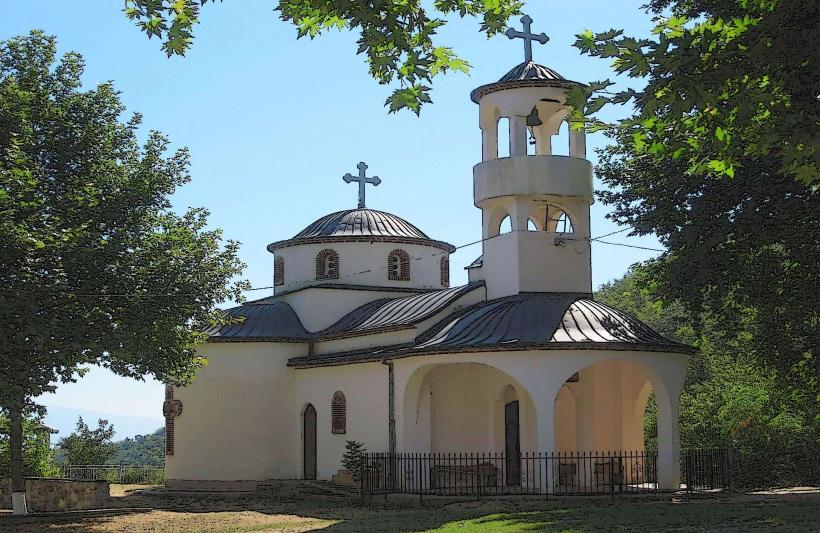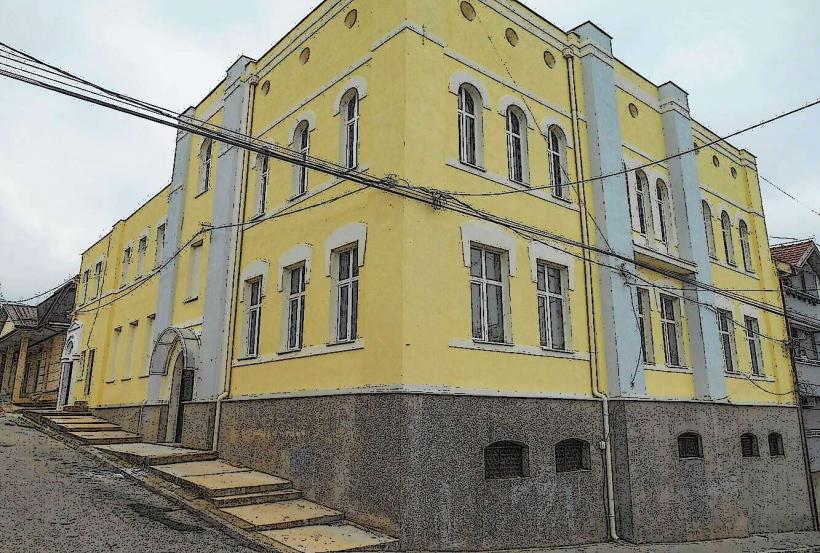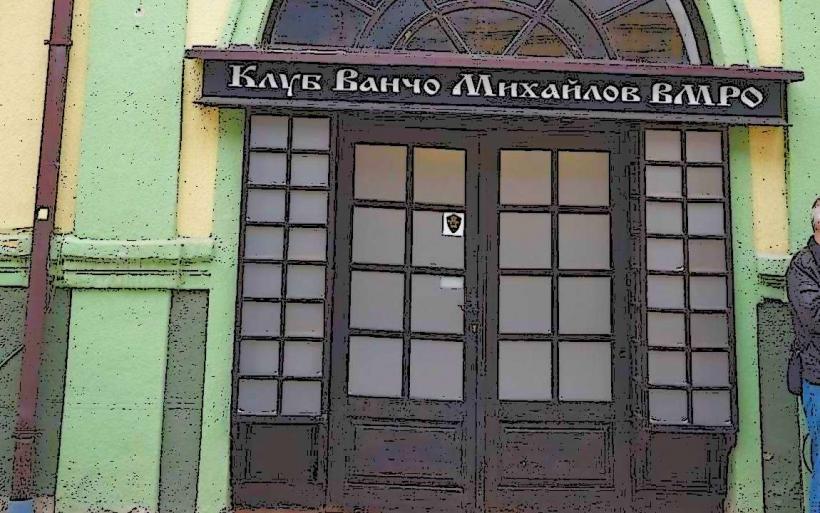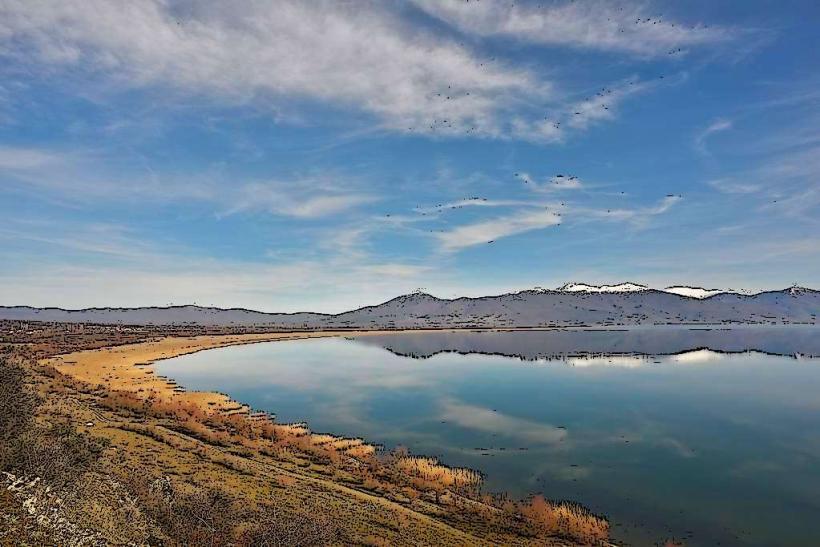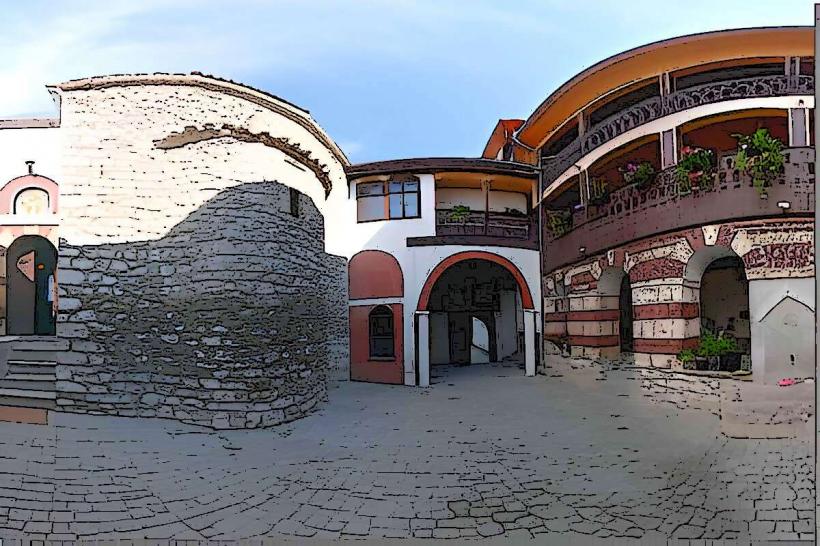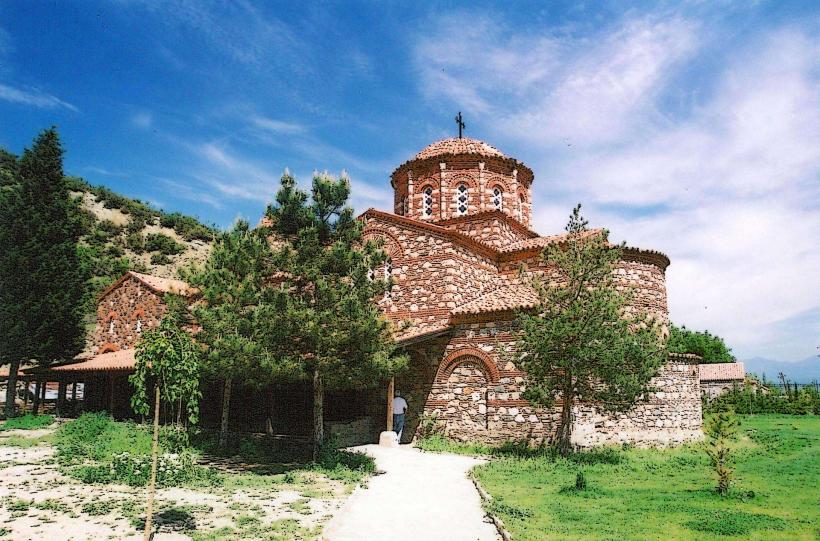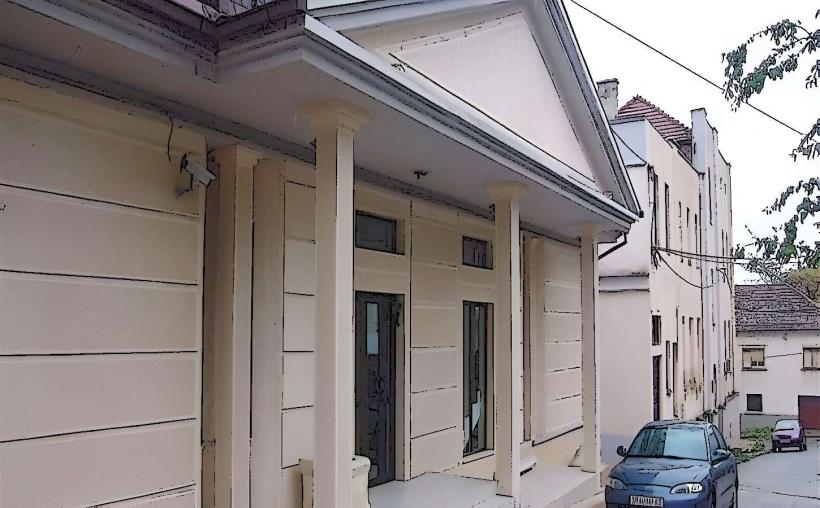Information
Landmark: Church of St. Archangel MichaelCity: Strumica
Country: North Macedonia
Continent: Europe
The Church of St. Archangel Michael is an important Orthodox Christian church located in the village of Markova Sushica, near the town of Strumica, in southeastern North Macedonia. The church is dedicated to St. Michael, one of the principal archangels in Christian theology, and it holds significant religious and historical value for the local community.
Key Features of the Church of St. Archangel Michael
Historical Background:
- The Church of St. Archangel Michael dates back to the 13th century, during the period of the Byzantine Empire, and is believed to have been built by the local population under the influence of Byzantine Christianity. The church reflects the spiritual importance of the region during this period.
- It is situated in a region known for its Orthodox Christian heritage, and the church stands as a testament to the long-standing religious traditions in the area.
- The church is associated with various local legends and historical events, making it an important cultural and spiritual symbol for the community.
Architectural Features:
- The church is designed in a traditional Byzantine style, featuring stone construction and a distinctive roof structure. It has a single-nave layout, typical of many medieval Orthodox churches in the region.
- The church has a rectangular floor plan with a semicircular apse at the eastern end, which is common in Byzantine ecclesiastical architecture. The iconostasis (the screen separating the altar from the main church space) inside the church features religious icons, which are central to Orthodox worship.
- The church also has an outer bell tower, adding to the architectural appeal of the site.
Religious Significance:
- The Church of St. Archangel Michael is dedicated to St. Michael, the archangel who is considered the protector of the faithful and a warrior against the forces of evil in Christian theology. This makes the church a place of spiritual devotion and a symbol of divine protection.
- It is an active place of worship, with regular liturgical services, especially on the feast day of St. Michael (November 8), when the church hosts celebrations and special prayers to honor the archangel.
Cultural and Historical Importance:
- The Church of St. Archangel Michael is not only an important religious site but also a cultural landmark, reflecting the Byzantine influence on the religious architecture of the region. The church is a part of the cultural heritage of Strumica and the surrounding areas.
- It is part of a broader network of churches and monasteries in southeastern North Macedonia, which have played key roles in the region's Orthodox Christian traditions over the centuries.
Tourism and Preservation:
- Today, the Church of St. Archangel Michael is a significant tourist destination for those interested in the history, architecture, and religious traditions of the area. Visitors come to admire the historic architecture, the beautiful frescoes, and the serene surroundings.
- The church is also part of efforts to preserve the Orthodox Christian heritage of North Macedonia, with ongoing initiatives to protect its historical and religious value.
Frescoes and Iconography:
- The interior of the church is adorned with several frescoes depicting scenes from the Bible, the life of St. Michael, and various saints. These frescoes are an important part of the church's spiritual and artistic significance.
- The iconography inside the church is traditional, featuring saints and angels, and is created in the style typical of Byzantine religious art.
Conclusion
The Church of St. Archangel Michael in Markova Sushica is a key religious and cultural site in Strumica and southeastern North Macedonia. Its Byzantine-style architecture, historical significance, and ongoing role as a place of worship make it a cherished landmark for both locals and visitors. The church serves as a testament to the region's rich Christian heritage and continues to play an important role in the spiritual life of the community.

